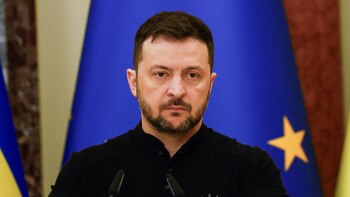
In the midst of the IV Skills Summit 2022 held in Cartagena, spokespersons for the Organization for Economic Cooperation and Development (OECD) highlighted the way in which the Colombian government attended the education sector during the crisis unleashed by the covid-19 pandemic. International representatives called the management “successful and effective” as it managed to support their processes in digital media.
President Ivan Duque welcomed the exaltation and affirmed that this achievement was not without its difficulties. He points out that everything is the product of the effort of his cabinet that expedited the issuance of appropriate public policies.
It was detailed that during this time the relevant skills in the labor market have been strengthened to train children and young people in machine learning, Artificial Intelligence, source code programming, creative industries and digital animation. In addition, courses on integrated services and relational databases were offered.
The president asserted that the pandemic did not stop the objectives set for the country and important and structural steps were taken. Among these milestones, he mentioned that the largest education budget in the history of the country was available, early childhood care was extended to 2.5 million children and more than 35 million food assistance packages were delivered. In addition, more than $1.3 billion was allocated to strengthen the educational infrastructure, represented in 250 new schools nationwide and 166 more by August 7; that is, 12,000 new classrooms.
He also mentioned the training of 107,000 teachers in skills and the adoption of the historical policy of equity: “to bring public higher education, free of charge, to the most vulnerable people and the emerging middle class, reaching 97% of public higher education in our country,” he said.
With this in mind, Duque took advantage of his speech to reiterate that further progress in this field requires comprehensive public policies related to early childhood care, training and investment in the field of education and its infrastructure. In this regard, he invited other countries to create alliances towards this objective that would generate substantive changes.
“I want to make a special invitation to the OECD countries: we countries have to develop, implement and guide, the union of two concepts: sustainability and technology, which can come together and call it in one way, such as sustainability,” he said.
Duque pointed out that when he talks about skills, he refers to early childhood care to youth policies. He assures that, in turn, the latter has to do with the interaction of science, technology and innovation policies, creativity, industrial development and entrepreneurship.
Finally, he pointed out that this summit is an opportunity to regulatively harmonize these public policies. “And that the best global practices can be brought to our country; but also to propose from Colombia to the world, a series of coherent, adaptable and effective public policies,” he added.
KEEP READING:
Últimas Noticias
Debanhi Escobar: they secured the motel where she was found lifeless in a cistern
Members of the Specialized Prosecutor's Office in Nuevo León secured the Nueva Castilla Motel as part of the investigations into the case

The oldest person in the world died at the age of 119
Kane Tanaka lived in Japan. She was born six months earlier than George Orwell, the same year that the Wright brothers first flew, and Marie Curie became the first woman to win a Nobel Prize

Macabre find in CDMX: they left a body bagged and tied in a taxi
The body was left in the back seats of the car. It was covered with black bags and tied with industrial tape
The eagles of America will face Manchester City in a duel of legends. Here are the details
The top Mexican football champion will play a match with Pep Guardiola's squad in the Lone Star Cup

Why is it good to bring dogs out to know the world when they are puppies
A so-called protection against the spread of diseases threatens the integral development of dogs




